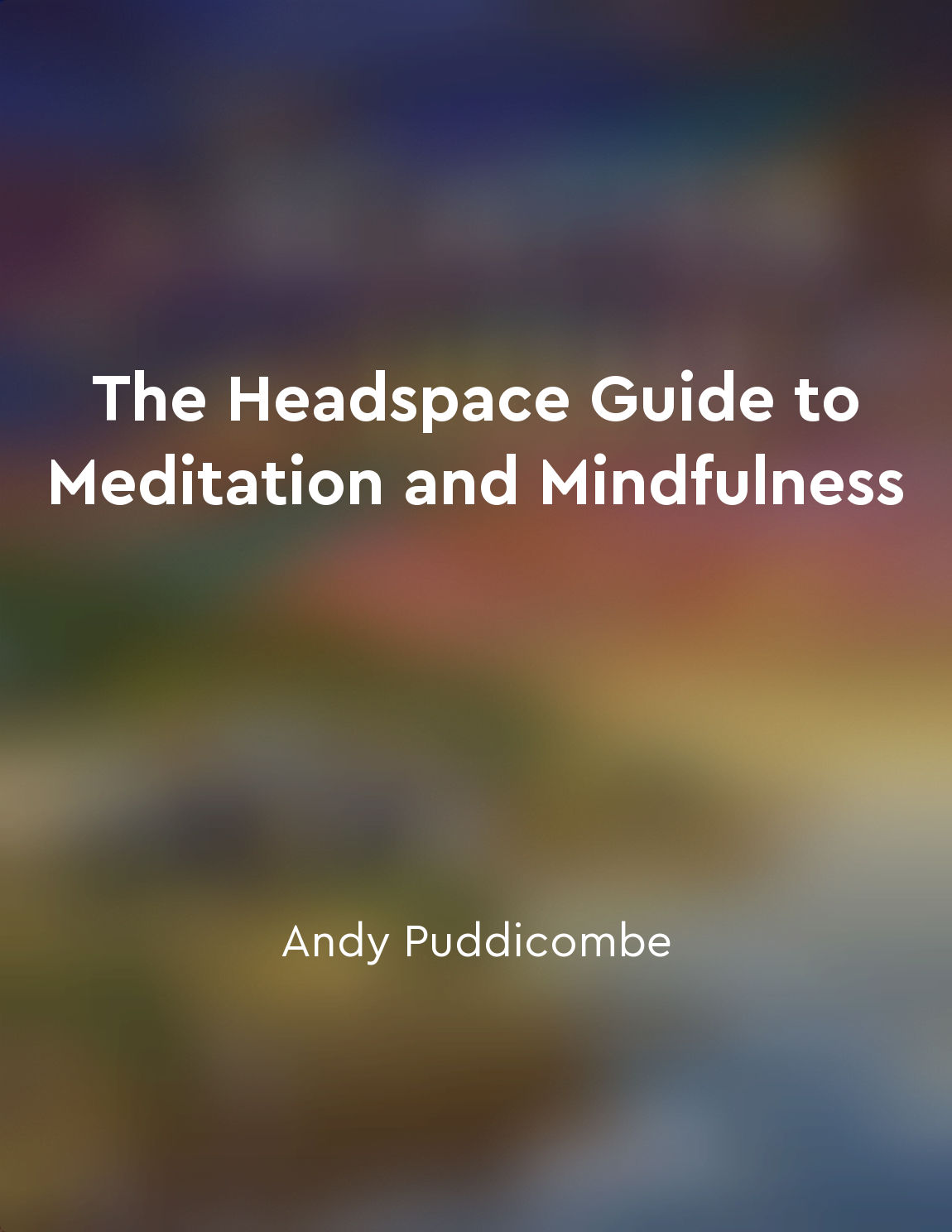Mindfulness practices can help in overcoming codependency from "summary" of Codependency For Dummies by Darlene Lancer
Practicing mindfulness can be a valuable tool in healing from codependency. By bringing awareness to our thoughts, emotions, and behaviors in the present moment without judgment, we can begin to understand the patterns that keep us stuck in codependent relationships. Mindfulness allows us to observe ourselves with compassion and curiosity, rather than falling into self-criticism or denial. When we are mindful, we are better able to recognize when we are engaging in codependent behaviors, such as people-pleasing, caretaking, or neglecting our own needs. By becoming more aware of these patterns, we can start to make conscious choices about how we want to show up in our relationships. Instead of reacting automatically out of fear or insecurity, mindfulness helps us pause and consider healthier ways of relating to others. In addition to increasing self-awareness, mindfulness can also help us regulate our emotions and reduce anxiety. By tuning into our physical sensations and practicing deep breathing exercises, we can calm our nervous system and prevent ourselves from getting overwhelmed in triggering situations. This newfound sense of calm can give us the space we need to respond thoughtfully, rather than reacting impulsively from a place of fear. Furthermore, mindfulness can help us cultivate a greater sense of self-compassion and self-acceptance. By acknowledging our own worth and practicing kindness toward ourselves, we can break free from the cycle of seeking validation and approval from others. This shift in mindset can empower us to set boundaries, prioritize our own needs, and build healthier, more balanced relationships.- Integrating mindfulness practices into our daily lives can support us in breaking free from codependency and reclaiming our sense of agency and autonomy. By developing a deeper connection to ourselves and cultivating inner resources for self-soothing and self-care, we can navigate relationships from a place of strength and authenticity. Through mindfulness, we can heal old wounds, rewrite limiting beliefs, and create new patterns of relating that honor both ourselves and others.
Similar Posts

Start meditating with just a few minutes a day
Begin by setting aside just a few minutes each day to meditate. This might not seem like much, but it is a powerful way to intr...

Adjusting your communication style based on the situation is important
Being able to adapt your communication style to fit the situation at hand is a crucial skill to have. It involves understanding...
Selfcare practices are crucial for cultivating resilience against melancholy
It is imperative to prioritize self-care practices in order to build a strong defense against the overwhelming weight of melanc...
Selfcompassion is not about self-pity or self-indulgence
Self-compassion is fundamentally different from self-pity and self-indulgence. Self-pity is more about feeling sorry for onesel...
Boundaries help maintain healthy relationships
Setting and maintaining boundaries is crucial in any relationship, as they serve as guidelines for how individuals interact wit...
A spiritual awakening is possible for all
The idea that a spiritual awakening is attainable by all is a central theme in the program of Alcoholics Anonymous. It is a bel...
Human capability is the ultimate competitive advantage
Human capability is at the heart of every organization's success. It is the driving force that propels companies forward in an ...

Practice empathy and understanding
The quality of empathy and understanding is a cornerstone of any successful relationship. When you are able to put yourself in ...
Mindfulness encourages empathy
When you practice mindfulness, you become more in tune with your own thoughts and emotions. This awareness helps you better und...
Social skills are vital for emotional intelligence
In the realm of emotional intelligence, social skills play a crucial role in how individuals navigate their relationships and i...

